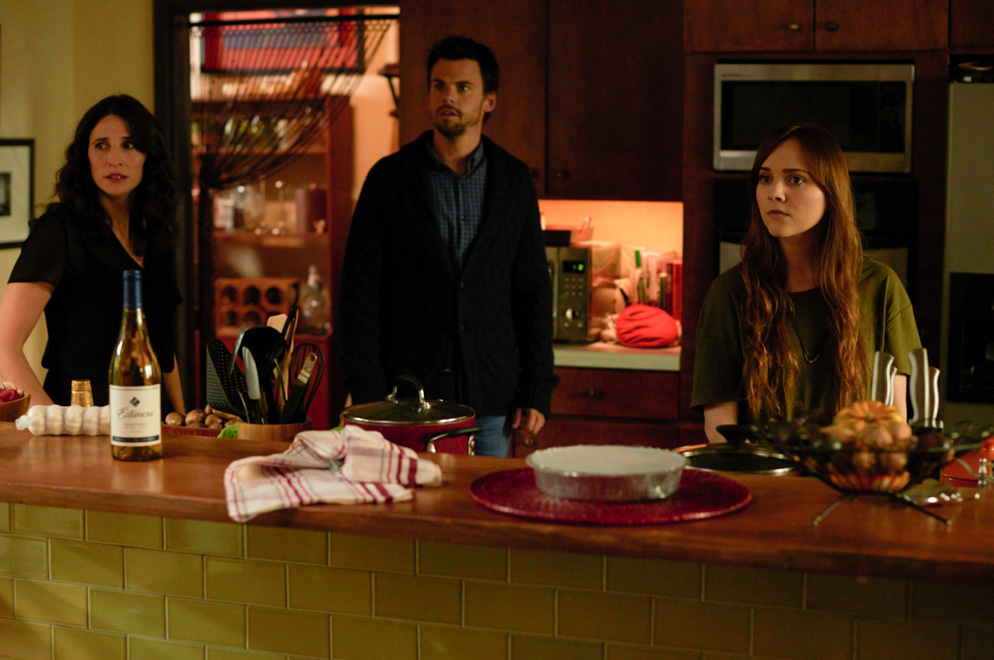While streaming services Netflix and Amazon have had little trouble breaking into the online television game, competitor Hulu has never quite succeeded in generating a following. Over the years, the company –- a joint venture between Disney/ABC, Fox and NBC Universal –- has tried to launch a handful of original programs, but, in the end, no Hulu series has actually managed to go the distance. In essence, Hulu is still waiting for its “House of Cards” or its “Transparent”: a prestigious program that can take home the statuettes and draw some attention to an otherwise overlooked corner of the television market.
With “Casual,” the website’s latest effort, Hulu hopes to put an end to its reputation for subpar original content and, though only two episodes have been released to the public thus far (Hulu has decided to stretch the series’ 10 installments across a number of weeks), it seems that Hulu has finally found its poster child.
Executive-produced by Jason Reitman (director of the Oscar-nominated “Juno”), “Casual” is easily something you might expect to find on HBO or even Amazon (oftentimes it feels eerily similar to Amazon’s “Catastrophe”). It’s beautiful and bold, marked by a polished cinematic look and a cast that proves indispensable to the show’s inherent charm. Though the conceit is less than original -– two bachelors discover the online dating scene, chaos ensues -– the writing, by creator Zander Lehmann, resists the urge to cave to cheap cynicism, and, as a result, “Casual” never feels like a re-hashing of a tired narrative. There is real heart here: real chemistry between the leads and real humor in Lehmann’s exploration of the family (and self) in crisis.
“Casual,” as you might have already guessed, refers to the frivolous relationships that come to define the lives of Valerie (Michaela Watkins) and Alex Cole (Tommy Dewey), unlucky-in-love siblings –- the former divorced, the latter depressed -– who occupy the same house, and together navigate the waters of loneliness. Neither has any trouble fixing other people’s problems (Valerie is a therapist, Alex is the inventor of a Tinder-esque online dating service), but both are ultimately too bruised to be content themselves. Instead they lean on one another, and, joined by Valerie’s not-so-teenage daughter Laura (a phenomenal Tara Lynne Barr), revel in an existence marked by dysfunction and tragic farce.
Again, it’s not the most novel concept –- two siblings move in together when their respective lives fall to pieces -– and “Casual” isn’t the most novel series (the number of clichés in the first episode is more than a shade daunting). But “Casual” is not a show that needs to be unique: It merely thrives on being genuine. When, in the pilot episode, Valerie and Alex meet by the restrooms to insult their respective matches, the scenario initially appears more than a bit trite, but once the siblings start trading remarks there is a sense of familial intimacy that eclipses the need for narrative theatrics.
It’s these little moments that matter in “Casual”: those fine strokes that mask the inherent artifice of the modern television series. In one scene, Valerie and Alex bicker over who should drive to an unofficial double date. In another, Laura reads theater reviews from the newspaper in an attempt make one of her mother’s lays feel more comfortable at the breakfast table. These passing moments of interaction lend vitality to the series, adding depth to pre-established character dynamics, themselves far more entertaining than any episodic plot.
Yet even with the sturdy support of Lehmann’s script, “Casual” would be nothing without the work of Watkins and Dewey. Watkins, long known for her comedic endeavors (including a season-long stint on “Saturday Night Live”), emerges as the dramatic anchor of the series. Her voice is hushed and her delivery is understated, but she slips so seamlessly between authoritative professional and timid bachelorette that her performance is nothing if not commanding. Dewey, on the other hand, radiates a cool affability that cleverly complicates what little we know of Alex’s struggle with mental illness. At one point, Alex greets a visitor in the buff, condensing the intricacies of Dewey’s character into a singular exchange: Alex is the type of man you so desperately want to be around, even if you’re not entirely sure what makes him tick.
Dysfunctional family dramas hinge upon this ability to make the broken inviting. Without desirability or even envy, you end up with something like “Bloodline,” a faux-serious southern gothic that suffocates you with its ceaseless antipathy for its characters. Here “Casual” succeeds in spades: There is something oddly aspirational about the Coles’ mess of a home. Not only is there a vigorous chemistry between the series’ three leads, but these characters click in a way that seems to transcend our facile understanding of relationships. Ultimately, this a family you can truly learn to love and there’s nothing “Casual” about it.
Contact Will Ferrer at wferrer ‘at’ stanford.edu.
